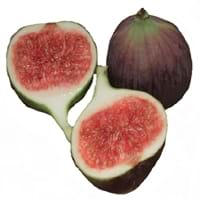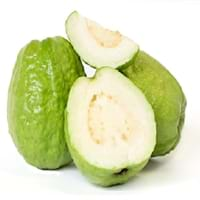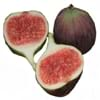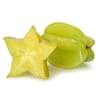Health Benefits
Cancer prevention, Controls blood pressure, Heart care, Increase in haemoglobin, Prevents constipation, Prevents macular degeneration, Reduces nervous tension
Cancer prevention, Diarrhea treatment, Prevents constipation, Scurvy treatment, Treatment of dysentary
General Benefits
Controls blood pressure, Helps in weight loss, Maintains healthy cholesterol level, Strengthens bones
Controls blood pressure, Cures cough, Improves eye vision, Maintains healthy cholesterol level, Treatment of common cold
Skin Benefits
Brightens and lightens complexion, Hydrates skin, Skin rejuvenation, Treatment of acne
Anti-aging benefits, Brightens and lightens complexion, Hydrates skin, Treatment of skin diseases
Hair Benefits
Good conditioner, Regulates hair growth, Softening mask
Prevents hair loss
Allergy Symptoms
Abdominal pains, Anaphylaxis, Coughing, Headaches, Hives, Itching, Nasal congestion, Skin rash, Sneezing, Sore throat, Swelling of hands
Breathing difficulty, Coughing, Runny nose, Sneezing, Swelling of mouth, tongue or lips, Wheezing
Side Effects
Allergic reaction, Skin rash, Possibly unsafe during pregnancy
Hair thinning, Nail thinning, Skin problems, Tooth decay, Weakness, Possibly unsafe during pregnancy
Best Time to Eat
Best if taken as a breakfast (or empty stomach), Don't consume at night and before bed, Morning time (before lunch)
As a snack in the late afternoon, Don't consume at night and before bed, Eat the fresh ones, avoid mixing with any other foods, don't eat after meal., Morning time (before lunch)
Vitamin B5 (Pantothenic Acid)
Vitamin C (Ascorbic Acid)
Vitamin K (Phyllochinone)
Phytosterol
Not Available
Calories in Fresh Fruit with Peel
Calories in Fresh Fruit without Peel
Not Available
Not Available
Calories in Frozen Form
Not Available
Type
Tree fruit
Tree fruit, Tropical
Season
Summer, Winter
All seasons
Varieties
Abyad, Adriatic, Alma, Atreano, Bataglia, Black Bethlehem, Black Madeira, Black Mission, Brown Turkey, Sierra, Calimyrna, Kadota, Deanna, Figoin and Hardy Chicago Fig
Lucknow 49, Allahabad Safeda, Chittidar, Harijha, Apple guava, Hafshi, Arka Mridula and Allahabad Surkha
Color
Green, Purple, Red
Green, Pink, Yellow
Origin
Western Asia
Central America, Mexico, South America
Soil Type
Clay, Limestone, Loam, Sandy
Loam, Rocky, Sandy
Climatic Conditions
Dry, Warm
Sunny
Facts about
- Fig tree is considered as a symbol of abundance, fertility and sweetness.
- The fig is made up of 55% of natural sugar so they are the sweetest fruits.
- Figs are used as a fat substitute in recipes.
- The black pigment in Guava leaves is used for textile applications.
- Guava leaves are used to make tea.
- Oils extracted from guava seeds are used in various cosmetics.
- Guava wood is used for decorative purposes.
Top Producer
Turkey
India
Other Countries
Albania, Algeria, Brazil, Egypt, Iran, Morocco, Syria, Tunisia, United States of America
China, Indonesia, Mexico, Nigeria, Pakistan, Philippines, Thailand
Top Importer
France
Canada
Top Exporter
Turkey
India
Botanical Name
Ficus carica
Psidium guajava
Synonym
Not Available
Not Available
Subkingdom
Tracheobionta
Tracheobionta
Division
Magnoliophyta
Magnoliophyta
Class
Magnoliopsida
Magnoliopsida
Subclass
Alismidae
Rosidae
Family
Moraceae
Myrtaceae
Species
Ficus carica
Psidium guajava
Generic Group
Mulberry
Myrtle
Difference Between Fig and Guava
We might think that Fig and Guava are similar with respect to nutritional value and health benefits. But the nutrient content of both fruits is different. Fig and Guava Facts such as their taste, shape, color, and size are also distinct. The difference between Fig and Guava is explained here.
The amount of calories in 100 gm of fresh Fig and Guava with peel is 74.00 kcal and 68.00 kcal and the amount of calories without peel is Not Available and Not Available respectively. Thus, Fig and Guava belong to Low Calorie Fruits and Low Calorie Fruits category.These fruits might or might not differ with respect to their scientific classification. The order of Fig and Guava is Rosales and Myrtales respectively. Fig belongs to Moraceae family and Guava belongs to Myrtaceae family. Fig belongs to Ficus genus of Ficus carica species and Guava belongs to Psidium genus of Psidium guajava species. Beings plants, both fruits belong to Plantae Kingdom.









